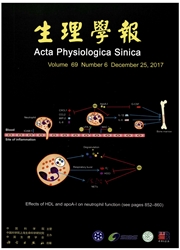

 中文摘要:
中文摘要:
Ca^2+信号是细胞和各器官生长发育、行使其生理功能的基础,维持心肌细胞的钙稳态是保持正常心脏功能的先决条件。作为在胚胎发育过程中最早出现并行使功能的器官,胚胎期心脏的形态结构发生了明显的变化,泵血功能不断增强,以适应不断增强的机体的生理需求。从胚胎到成年,心肌细胞的功能有非常大的改变,各钙离子通道的表达也发生明显变化。因此,发育早期心肌细胞的钙稳态调控与成熟心肌细胞有明显的不同,在发育过程中引起细胞收缩的Ca^2+来源也有明显的变化。随着分子和细胞生物学研究的发展,以及胚胎干细胞体外分化模型的应用,人们对心肌细胞发育过程中钙稳态的调控有了进一步的认识。本文综述了早期心肌细胞发育过程中胞浆内钙稳态的变化,总结了早期心肌细胞钙稳态调控机制的最新研究进展。
 英文摘要:
英文摘要:
The proper intracellular Ca^2+ signaling is essential for normal cell functions and organ development, and the maintaining Ca^2+ homeostasis in cardiac myocytes is of functional importance for the intact heart. As the first functional organ in the vertebrate embryo, the heart is continuously remodeled and maintains its physiologic pumping function in response to increasing circulatory demands. The expressions of Ca^2+ handing proteins in the embryonic heart, however, are different from those in neonatal and adult hearts, which means that the regulation of Ca^2+ transients in embryonic cardiomyocytes is different from that in adult cardiac myocytes. Recent advances in molecular and cellular biology, as well as the application of embryonic stem cell differentiation system, have made progress in uncovering the regulation of Ca^2+ homeostasis during cardiomyogenesis. This paper briefly summarizes the Ca^2+ homeostasis during early development of cardiomyocytes and reviews current knowledge of the regulatory mechanisms controlling Ca^2+ homeostasis during cardiomyocyte development.
 同期刊论文项目
同期刊论文项目
 同项目期刊论文
同项目期刊论文
 期刊信息
期刊信息
